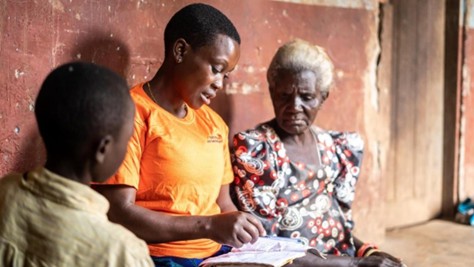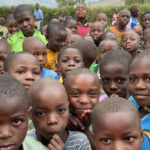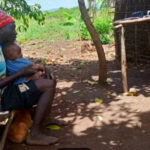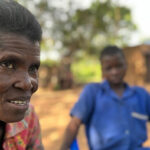Para-Social Workers (PSWs) are an invaluable part of community-based social service delivery, particularly in Uganda, where they play a major role in supporting vulnerable populations. Recognized by the Ministry of Gender, Labour and Social Development (MGLSD), PSWs are seen as the first line of defense in child protection and welfare response. Their role is crucial in reaching households with essential services, often through home visits and referrals within a community case management approach. These efforts are part of a broader strategy to ensure that vulnerable individuals, especially children, receive the care and protection they need.
PSWs bridge critical gaps in the social service workforce by providing support and care at the community level. While they do not have formal qualifications in social work, they are trained to provide essential social services, counseling, and emotional support. Through understanding the unique challenges and cultural dynamics of their communities, PSWs can offer tailored interventions and connect families to the right resources. They play a crucial role in the holistic development of children, ensuring that interventions align with family-based frameworks that promote long-term stability and well-being.
In the context of the Bantwana SAFE Program, which focuses on child protection and empowerment, PSWs are an integral part of the program’s success. The SAFE Program, which stands for Safety at All times For Every, relies heavily on the work of PSWs to deliver community-based services. PSWs are trained to recognize the signs of abuse, neglect, and exploitation and are often the first to intervene when vulnerable children or families are at risk. They ensure that urgent cases receive immediate attention, and they work closely with local authorities to ensure statutory cases are reported and followed through with the appropriate legal action.
The importance of PSWs extends beyond just crisis intervention. They also play a key role in prevention and long-term community development. Through participating in community education and awareness campaigns, PSWs help families understand their rights and the available support systems. They promote child protection and advocate for changes that can reduce risks such as child marriage, teenage pregnancy, and violence against children. Their efforts are essential in building community resilience and fostering an environment where families are better equipped to support their children’s development and well-being.
The Government of Uganda’s commitment to improving child protection and welfare is underscored by the development of a comprehensive training manual for PSWs, which was revised to equip them with the necessary skills and knowledge to respond effectively to contemporary challenges. This training manual aligns with national policies and frameworks, including the National Child Policy 2020 and the National Strategy to End Child Marriage and Teenage Pregnancy 2022. It provides a structured guide for PSWs to improve the coordination of services, from health and education to protection and social welfare, ensuring a unified response to the needs of vulnerable children and families.
The role of PSWs is crucial within Uganda’s broader Social Care and Support System, which is designed to improve coordination across different sectors and service providers. PSWs work at the community level, connecting families with health services, education, protection, and welfare programs. They ensure that referrals are completed, and they participate in multi-sectoral case management, where various actors, such as Community Development Officers (CDOs), Probation and Social Welfare Officers (PSWOs), and law enforcement, collaborate to address complex cases. This integrated approach is essential to preventing the fragmentation of services and ensuring that vulnerable children and families receive the comprehensive support they need.
PSWs are also central to the success of the Parish Development Model (PDM), which aims to enhance service delivery at the local level. Through working closely with district Child Well-Being Committees (CWCs) and local government structures, PSWs contribute to more efficient service provision. Their involvement in case management, follow-up, and coordination helps to reduce the burden on professional social workers, who often face unmanageable caseloads. This system of support ensures that the most vulnerable populations are not left behind.
One of the key strengths of the PSW model is its focus on family and strength-based case management. PSWs are trained to engage with families in a supportive and empowering way, helping them to address their challenges and build resilience. By providing ongoing support, PSWs ensure that families can make progress toward improving their health, financial stability, and overall well-being. This family-centered approach is essential for long-term positive outcomes, as it helps to create an environment where children can thrive and families can sustain their progress over time.
In conclusion, the SAFE Program and beyond, PSWs are making a measurable impact. Research indicates that communities with active PSWs see improved child protection outcomes, including increased reporting of abuse and better access to services. Where providing immediate support, connecting families to resources, and working to prevent future harm, PSWs are crucial in building resilient, healthy communities. Their work not only strengthens the fabric of society but also lays the foundation for a brighter future for vulnerable children and families.

















Leave a Reply